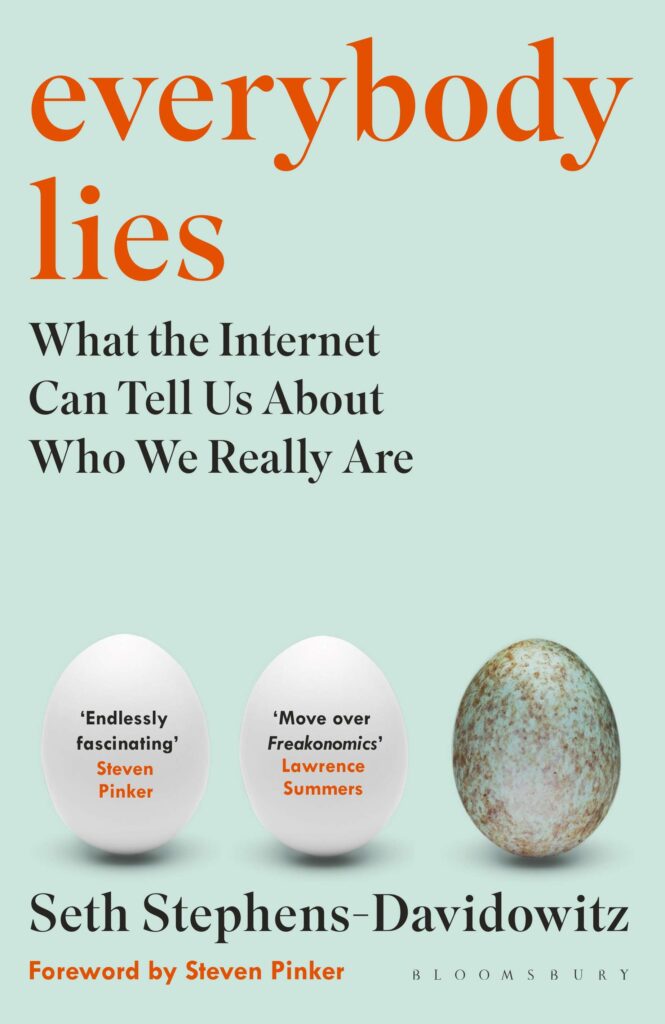Everybody Lies : Insightful. Shocking. Mind-blowing. Original. Smart.
Seth Stephens Davidowitz introduces us to the smart and astonishing insights by analysing the huge collection of big data.
In the process, it lists many anecdotes and examples:
1. Why election of Donald trump should not surprise us!
2. What is the biggest worry in a marriage – sexless marriage, loveless marriage or unhappy marriage?
3. How many men are gay?
4. Does advertising work?
5. What should you talk about on a first date if you want a second?
6. Can you beat the stock market?
7. What is the most interesting sexual query in India?

Let me summarise quick points:
1. The book’s basic premise is that everybody lies – to themselves and others. But digital trails that we leave on internet can be highly revealing.
2. Everybody lies. How many drinks they had on the way? How often they go to gym? How many books they read? People want to look good and they under-report embarrassing behaviours and thoughts on surveys. This is called Social Desirability Bias.
3. People brag through social media posts, social media likes and dating profiles. But the real truth is revealed by searches, views, clicks and swipes
4. Google searches are the most important dataset ever collected on the human psyche. The internet can tell us a lot about ourselves – things we may or may not know about ourselves. It also exposes the chasm between ideal self we project to the world and the true beings we are.
5. The new data increasingly available in our digital age will radically expand our understanding of humankind.
6. Trust data and build your actions around it! Analyse data and build your business around it!
7. Netflix learned the above lesson early on in its life cycle – don’t trust what people tell you, trust what they do. So did Facebook.
8. People say they do not want to stalk their friends. There is little in this world they want more than to keep up with and judge their friends. Mark Zuckerberg’s net worth is the biggest proof of this.
9. Similarly, everyone will claim that they have no interest in reading about bondage, dominance and sadomasochism. But people want to read about BDSM between a young college graduate and a business magnate. Proof: 50 Shades of Gray’s success – 125 million copies sold in original and the movie franchise and the revenue collection around this.
10. Apart from business, academicians can also use big data and digital trails. Academics can use digital data to test a few hundred or a few thousand ideas in just a few seconds. No need to recruit army of researchers to perform a single test.
11. Researchers need to include digital data in research. Researchers on desirability and sexuality need to supplement their questionnaires to hundreds of subjects with data from sites like PornHub.
12. Collecting rich data on the world’s problems is the first step towards fixing them. Indeed, the algorithms know us better than we know ourselves.
Everybody Lies is a wonderful book indeed. A must-read for everyone to know the new emerging world. It continues the legacy of Freakonomics and Moneyball.
What we can learn? Study data and make decisions. The best way to work today is to have a data-driven approach. Data and insights can help you win – a difficult boss, a challenging sale and maybe love!
Image Courtesy: Grzegorz Walczak on Unsplash

